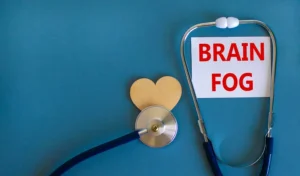I created Fit Recovery in part because there are too many dry medical accounts of withdrawal on the Internet, written by people who have never experienced what they are writing about. I knew an accomplished executive who had a grand mal seizure while drinking in a bar. He was severely addicted, and on this occasion he did not drink enough to maintain temporary GABA/glutamate stability. When he had the seizure, he fell off of his barstool, hit his head on the floor, and convulsed for over a minute.
What is the treatment for alcohol withdrawal?
- Dependence is a chemical response to the consistent presence of alcohol in your brain and body.
- Contact your doctor if you or someone you know is experiencing alcohol dependency or withdrawal symptoms.
- These seizures are one of the most serious symptoms of alcohol withdrawal syndrome (AWS) and typically arise when a person suddenly stops or drastically reduces alcohol consumption after prolonged heavy drinking.
- Those who have a history of detoxification are more likely to experience seizures during alcohol withdrawal.
Each of these symptoms can increase in intensity depending on the severity of the withdrawal. Experiencing alcohol tremors is a sign that something more serious may be going on, but stopping alcohol use may feel impossible right now. Alcohol rehab will give you the tools needed to leave alcohol behind and take back control of your physical and mental health.
Comprehensive Treatment Strategies for Alcohol Seizures
Consequently, the clinician’s initial assessment also serves to exclude other conditions with symptoms similar to those of AW. Examples of such conditions include subdural hematoma (i.e., the collection of blood in the space between the membranes surrounding the CNS), pneumonia, meningitis, and other infections. Similarly, seizures and DT’s may be confused with other conditions that should be excluded during initial assessment.
Alcohol Withdrawal Can Cause Seizures
Therapeutic approaches provide strategies to cope with cravings, develop healthier habits, and tackle underlying alcohol withdrawal seizure issues contributing to heavy alcohol use. Evidence-based treatments like cognitive-behavioral therapy (CBT) help modify thinking and behavior related to alcohol use. For those with epilepsy, alcohol can trigger seizures, especially during withdrawal. The interaction between alcohol and antiseizure medications can exacerbate the situation, highlighting the need for caution among those with epilepsy. Individuals with a history of heavy alcohol use or those who abruptly stop drinking are at heightened risk for seizures. If you are detoxing in a facility, your medical staff will administer medications and help alleviate the worst of the symptoms.
An alcohol withdrawal seizuremay feel likea loss of consciousness which you are slow to wake up from. If you are conscious during an alcohol withdrawal seizure, you may experience repetitive, uncontrolled movements of part or all of your body. Prior to the seizure, you may also experience an “aura,” consisting of an unusual visual change, smell, taste, or sound caused by abnormal brain activity.
- The most severe manifestations of AW include hallucinosis, seizures, and DT’s (see also the figure on pp. 63, from Victor and Adams’ classic paper).
- This proactive approach enhances overall health and helps in the early identification of factors that could lead to alcohol-induced seizures.
- There’s no need to worry about having a seizure or getting delirium tremens because help is always nearby to prevent complications and soothe your uncomfortable symptoms.
- To better understand the mechanisms underlying withdrawal, one must briefly review some of the principles of neuronal communication in the CNS.
Therapy
Our state-specific resource guides offer a comprehensive overview of drug and alcohol addiction treatment options available in your area. If you think you may be struggling with alcoholism or have experienced an alcohol-induced seizure, it may be time to seek professional help. For many, choosing to take that first step to seeking treatment can be scary, but you’re not alone. For long-term Alcoholics Anonymous management, medications such as acamprosate and naltrexone have proven effective in treating AUD and can help reduce or eliminate alcohol use. Gabapentin and topiramate, while not officially approved for this use, can serve as second-line treatments for AUD.
- Approximately 2–5% of those who misuse alcohol will experience alcohol withdrawal seizures.
- Unprovoked seizures that occur more than 48 hours after a person’s last drink may be due to another cause, such as head injury or withdrawal from other drugs.
- Liver dysfunction from chronic alcohol consumption has a direct effect on the brain.
- When people with AUD attempt to quit drinking, they can experience withdrawal symptoms, including seizures or convulsions.
- The ketogenic diet, while primarily studied in pediatric cases, shows potential benefits for adults.
Up to one-third of people with significant alcohol withdrawal may experience alcohol withdrawal seizures. In the https://ecosoberhouse.com/ outpatient setting, mild alcohol withdrawal syndrome can be treated using a tapering regimen of either benzodiazepines or gabapentin administered with the assistance of a support person. Should symptoms worsen, patients and their support person should be instructed to present to the emergency department for evaluation and further treatment.





